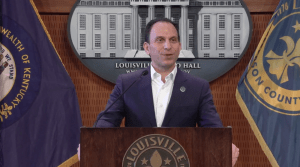Automation slashed permitting approval times in Minneapolis

Over the last year, the City of Minneapolis has transitioned its paper-based permitting system for more than 15 permit types to a digital process that uses automation software. Officials said the change has halved the administrative time needed to review and approve event permit applications.
The new system, powered by the software-as-a-service platform Smartsheet, has allowed the city to improve how it handles permitting the thousands of outdoor events residents host each year. This includes permits for food events, seasonal vendors, one-off events with amplified sound and participation in the city’s farmers market.
Along with reducing the time it takes to review and approve the permit applications, officials said Smartsheet has improved communication between applicants and the city and automated notifications about application status, including allowing credit card payments for permit fees via the system’s integration with DocuSign.
Scott Gehrig, a senior business analyst for Minneapolis, said his office issues permits for 300 to 600 food events per year. Before the COVID-19 pandemic, his office regularly dealt with “two-feet high” stacks of paper applications, he said. The city began experimenting with the software last year, and then last February, Gehrig said, his office expanded the project to include 12 of the health department’s 17 permit processes. Since then, the office has processed about 120 seasonal applications using the new method.
“If we had a question about any type of application, we would have to pick up a phone and call somebody or email someone. And there’s a lot of legwork that has to happen,” Gehrig said. “In Smartsheet, all we have to do now is send an update request right out Smartsheet to the applicant. It goes right out to the applicant, and then they can reply on their line.”
The new system also improved another aspect of the manual application process: difficulty deciphering messy handwriting. Gehrig also said the system enabled the city to shorten its application process from a 12-page PDF to a 5-page electronic form. It also allows Minneapolis city officials assign tasks to inspectors, track project progress, manage event calendars, share documents and manage other work.
Event calendars can also be shared with those who need it most. For example, Gehrig said Smartsheet’s calendar is automatically updated with events that receive permits, and that calendar is synced with local police precincts so they’re aware of which events are legally being hosted.
“One thing about the amplified sound application is that we also have to notify the police precincts one week before the event, and [before] we had to actually put it on a calendar that said, ‘Okay, we need to notify them of this event that’s happening on April 15.’ We’d have to send that out on April 8,” Gehrig said.
With Smartsheet, he said, the notification is sent out automatically based on the date of the event, and to the correct precinct.
The Smartsheet system, Gehrig said, will also allow for the potential to expand the city’s automation in other departments. And while his department still sends out paper permit forms to those who request them for accessibility reasons or just pure preference, Gehrig said the potential expansion is exciting.
“It’s great to see more and more departments looking for this technology, because being able to [issue permits] electronically is so much better than going through this 13-page document and having to fill out every single page,” Gehrig said. “I always like to say, for me, I don’t need Teams, I don’t need Excel, and I don’t need Outlook, because I can do all of that in Smartsheet.”






